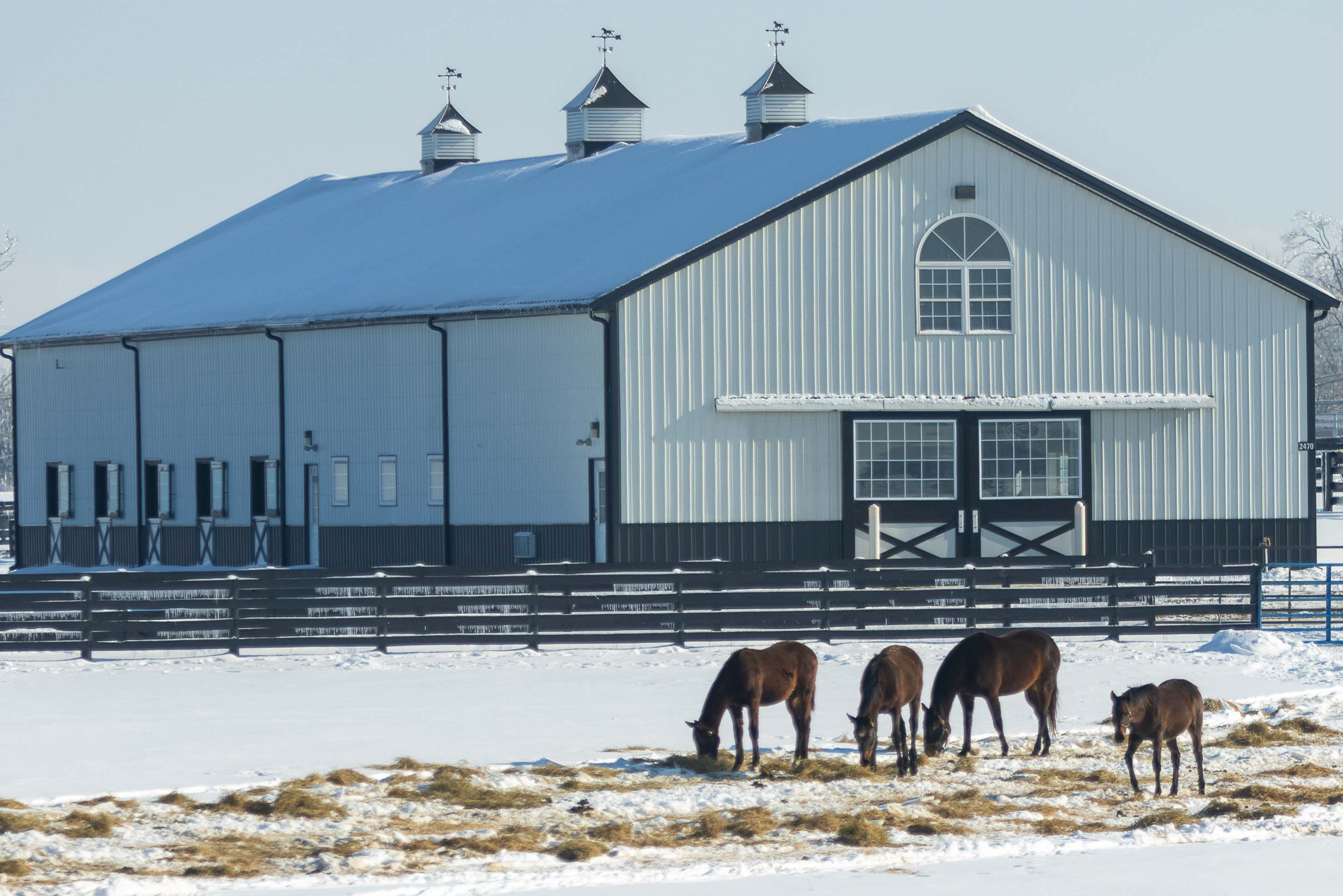Kentucky horse owners urged to plan ahead as weather challenges hay supply
Kentucky horse owners urged to plan ahead as weather challenges hay supply


Horse owners across Kentucky should start planning now for their winter hay needs as this year’s supply is shaping up to be highly variable.
Bob Coleman, equine extension associate professor with the University of Kentucky Martin-Gatton College of Agriculture, Food and Environment said that weather has been the driving force behind uneven conditions.
“Some areas have gotten plenty of rain, while others have been extremely dry,” Coleman said. “That means the hay crop is going to look different depending on where you’re buying it. To expect it to be the same as last year or years ago is not a good assumption. Where inventories are smaller, some people are keeping hay back to sell later, or they just don’t have as much to begin with.”
The result is a hay supply that varies not only in availability but also in quality. In some fields, hay was cut later than usual because of wet conditions. While it may be free of dust and mold, the crop is more mature and less nutrient-rich than horse owners might expect. Coleman noted that this does not make the hay unusable, it simply means horse owners need to be realistic about what they are buying.
“People may find that their hay isn’t as green as they’re used to, or that the nutrient profile doesn’t quite match past years,” Coleman said. “That doesn’t mean it isn’t safe to feed. It just means you need to know what you’re dealing with.”
To avoid guesswork, it is strongly encouraged horse owners get their hay tested. Local Cooperative Extension Service offices can provide the tools and advice for collecting a sample and will help interpret the results from the horse perspective. This allows owners to balance their animals’ diets properly and make the most of the hay’s nutrients.
In addition to nutrition concerns, weeds are another issue. Coleman said that foxtail has been showing up in more hay fields. This plant can cause irritation and mouth sores in horses, making it a problem in the hay. He urged horse owners to closely inspect hay before purchase.
Knowing the weight of the bales one is buying is just as important as knowing the type of hay.
“If you’re purchasing 100 bales, there’s a big difference between 50-pound bales and 40-pound bales,” Coleman said. “That’s 5,000 pounds of hay versus 4,000 pounds. If your horses require 4,500 pounds of hay, using the heavier bales would result in a slight surplus, while the lighter bales would leave you short. You really need to know what you’re getting, both in quality and in weight.”
Coleman also recommends more controlled feeding practices.
“Rather than offering free-choice hay, measure out what your horses need each day,” he said. “That helps reduce waste and makes your supply last longer. Also remember that hay from a second or third cutting could be different than the first. This makes it important for horse owners to make gradual changes to give horses time to adapt the same as if you were switching them from hay to grain.”
Due to all of these factors, Coleman advises horse owners to act early.
“If you know you’re going to need hay, don’t wait,” he said. “Line up your supply now and be prepared to work with more than one seller if necessary.”
For those who cannot secure enough hay, alternatives are available. Processed forage products such as alfalfa cubes, alfalfa-grass cubes or commercial hay pellets can help fill the gap.
For more information about hay testing and feeding strategies, contact your local county extension office.
###
Writer: Jordan Strickler, jstrickler@uky.edu
The Martin-Gatton College of Agriculture, Food and Environment is an Equal Opportunity Organization with respect to education and employment and authorization to provide research, education information and other services to individuals and institutions that provide equal opportunities for qualified persons in all aspects of institutional operations and do not discriminate on the basis of race, color, national origin, ethnic origin, religion, creed, age, physical or mental disability, veteran status, uniformed service, political belief, sex, sexual orientation, gender identity, gender expression, pregnancy, marital status, genetic information or social or economic status.
Ag Equine Programs Extension Plant & Soil Sciences

